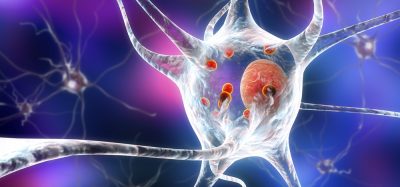Study shows that FOXO3 gene protects brain stem cells
Posted: 22 February 2021 | Victoria Rees (Drug Target Review) | No comments yet
A version of the FOXO3 gene can protect brain stem cells from stress during ageing, according to a new study.

A gene linked to unusually long lifespan in humans has been found to protect brain stem cells from the harmful effects of stress, according to a new study. The study was conducted by investigators at Weill Cornell Medicine, US.
Studies of humans who live longer than 100 years have shown that many share an unusual version of a gene called Forkhead box protein O3 (FOXO3). This discovery led Associate Professor Jihye Paik and her colleagues to investigate how this gene contributes to brain health during ageing.
The team showed that mice who lack the FOXO3 gene in their brain are unable to cope with stressful conditions in the brain, which leads to the progressive death of brain cells. The researchers revealed that FOXO3 preserves the brain’s ability to regenerate by preventing stem cells from dividing until the environment will support the new cells’ survival.
“Stem cells produce new brain cells, which are essential for learning and memory throughout our adult lives,” said Paik. “If stem cells divide without control, they get depleted. The FOXO3 gene appears to do its job by stopping the stem cells from dividing until after the stress has passed.”
Many challenges like inflammation, radiation or a lack of adequate nutrients can stress the brain. However the team looked specifically at what happens when brain stem cells are exposed to oxidative stress.
“We learned that the FOXO3 protein is directly modified by oxidative stress,” Paik said. This modification sends the protein into the nucleus of the stem cell where it turns on stress response genes.
The team found that the resulting stress response leads to the depletion of a nutrient called s-adenosylmethionine (SAM). This nutrient is needed to help a protein called lamin form a protective envelope around the DNA in the nucleus of the stem cell.
“Without SAM, lamin cannot form this strong barrier and DNA starts leaking out,” Paik said.
According to the researchers, the cell mistakes this DNA for a virus infection, which triggers an immune response called the type-I interferon response. This causes the stem cell to go dormant and stop producing new neurons.
“This response is actually very good for the stem cells because the outside environment is not ideal for newly born neurons,” Paik explained. “If new cells were made in such stressful conditions they would be killed. It is better for stem cells to remain dormant and wait until the stress is gone to produce neurons.”
The study may help explain why certain versions of FOXO3 are linked to long and healthy lives – they may help people keep a good reserve of brain stem cells. It may also help explain why regular exercise, which boosts FOXO3, helps preserve mental sharpness.
“[However] it could be a double-edged sword,” Paik explained. “Over activating FOXO3 could be very harmful. We do not want to keep this on all the time.”
To better understand the processes involved, the researchers will continue to study how FOXO3 is regulated and whether briefly turning it on or off would be beneficial for health.
The study was published in Nature Communications.
Related topics
Neuroprotection, Neurosciences, Regenerative Medicine, Stem Cells
Related organisations
Weill Cornell Medicine
Related people
Associate Professor Jihye Paik







